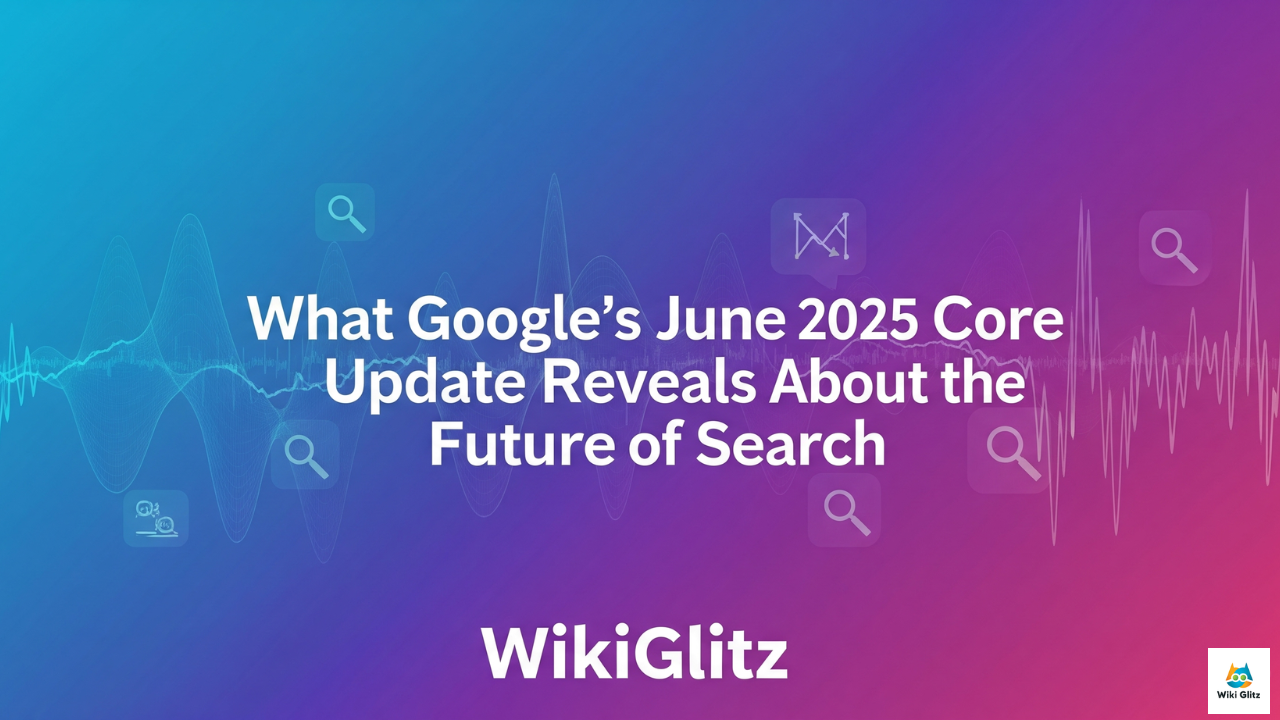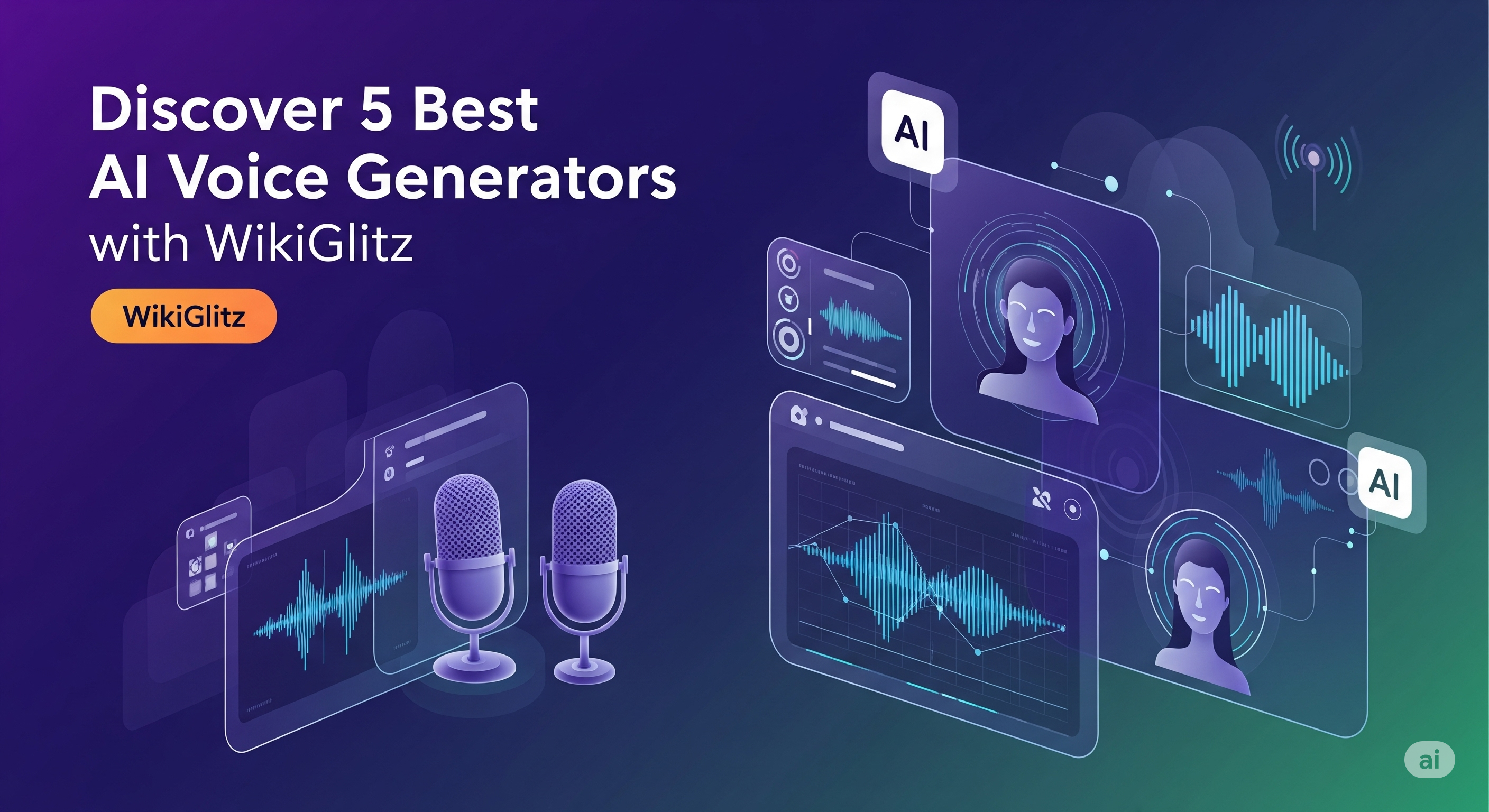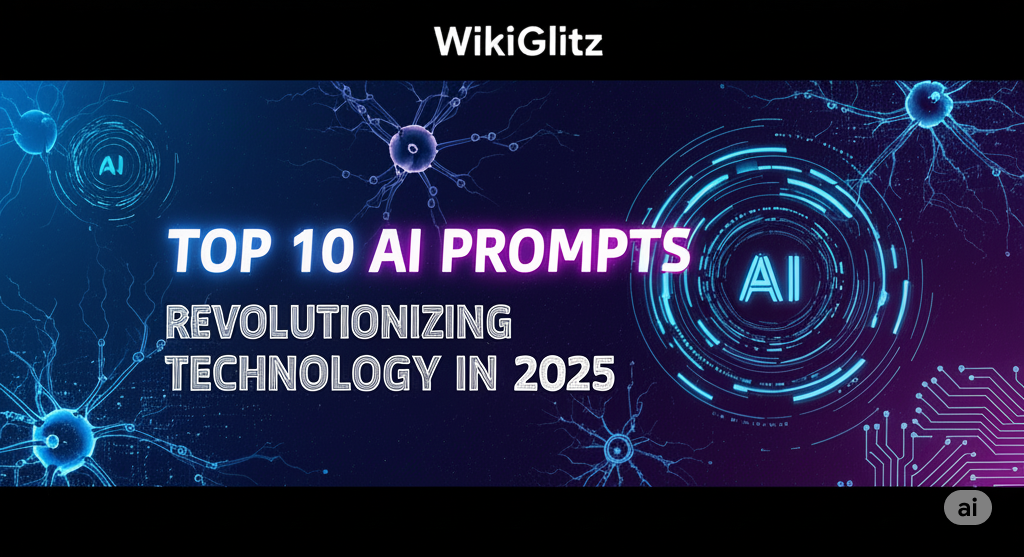What Google’s June 2025 Core Update Reveals About the Future of Search

Strong 8k brings an ultra-HD IPTV experience to your living room and your pocket.
Introduction
Google’s core algorithm updates are always major events in the SEO world, and the June 2025 Core Update is no exception.
At WikiGlitz, a leading technology blog site, we aim to break down complex tech news into simple, actionable insights. This update, rolled out starting June 27, 2025, and expected to take around three weeks, offers clear signs about where Google is heading with its search ranking priorities. It also reinforces key aspects of Google's ongoing focus on content quality, user trust, and search relevance.
In this article, we’ll explore what the June 2025 Core Update changed, what's affected, and what these changes indicate about the future of SEO and search behavior. Whether you're a content creator, marketer, or SEO analyst, the insights from this update are vital for adapting your strategy.
What Is a Google Core Update?
A Google Core Update is a broad change to the search engine’s algorithms and systems. Unlike minor updates targeting specific spam or features, core updates influence how Google evaluates and ranks content at a global level.
The goal is to ensure that users are getting the most relevant, high-quality, and trustworthy content in response to their queries.
Overview of the June 2025 Core Update
The June 2025 update is the second core update of the year. It followed a pattern similar to previous updates but had a longer rollout time, lasting approximately three weeks.
This suggests Google made significant internal changes that required extra time for global testing and implementation.
Key characteristics of this update include:
- Increased focus on E-E-A-T (Experience, Expertise, Authoritativeness, Trustworthiness)
- Emphasis on content originality and depth
- Devaluation of content that appears AI-generated or lacks human input
- Greater volatility in the first week, especially for health, finance, and education sectors
Major SEO Trends Emerging from the Update
- E-E-A-T is More Important Than Ever: Google’s ranking systems now weigh content quality with a stronger focus on authorship. Pages with clear authorship, credentials, and a history of expertise are performing better.
For instance, health blogs written by certified professionals have seen a rise, while those with vague authorship have dropped. - Original, Human-First Content Wins: Thin content, duplicated material, and auto-generated articles saw a decline. In contrast, content offering unique perspectives, personal experiences, or case studies performed better. A tech blog sharing real test results of a product now outranks generic reviews scraped from the web.
- Search Intent Matching is Smarter: Google appears to be aligning results more closely with user intent.
For example, a query like "best laptops for students 2025" now shows in-depth comparison articles instead of sales pages. This change benefits users but requires creators to write with a user-first mindset. - Video and Multimedia Integration is Valued: Pages with relevant embedded videos, infographics, and audio explanations have received visibility boosts. Google is clearly rewarding content that enhances user engagement and learning.
- Website Trust Signals Are Weighed More Heavily: SSL security, positive brand mentions, transparency in content, and low spam scores all seem to influence rankings more significantly post-update. Websites with deceptive popups or misleading headlines saw ranking drops.
Examples of Impact
- A popular financial education blog dropped by 20% in visibility due to vague author bios and overuse of AI-written summaries.
- A student-focused NEET coaching site in Tamil Nadu gained rankings because it offered authentic testimonials, detailed course breakdowns, and verified educator profiles.
- A travel site lost traffic due to low originality in destination guides, but regained ground after updating with first-person travel experiences.
How to Adapt Your SEO Strategy
- Audit and Improve Content Quality: Review your top-performing pages. Are they written by experts? Do they offer something unique? Enhance content by adding expert quotes, updated stats, and deeper insights.
- Strengthen Author Bios and Credentials: Add detailed author bios with qualifications and links to LinkedIn or personal blogs. This builds trust with both users and search engines.
- Diversify Content Formats: Include videos, charts, or slideshows in your blogs to increase engagement. Even simple explainer videos can improve time-on-page and reduce bounce rates.
- Review Site Structure and User Experience: Ensure your site is mobile-friendly, fast-loading, and easy to navigate. Google continues to prioritize UX as a ranking factor.
- Focus on People-First Content: Avoid writing just for keywords. Ask: "Is this genuinely helpful to the reader?" This approach naturally aligns with Google’s goals.
Conclusion
June 2025 Google Core update makes one thing clear: the future of search is human. Google continues to prioritize valuable, trustworthy, and original content created with real users in mind. SEO isn’t just about ranking higher; it’s about providing a better experience.
If you want to stay ahead in the SEO game, pay attention to the lessons from this update. Make your content more helpful, authentic, and user-focused.
For more in-depth analysis on SEO, AI, and digital marketing trends, be sure to read our full blog on the update at WikiGlitz.
Source: Adapted from content on WikiGlitz
Note: IndiBlogHub features both user-submitted and editorial content. We do not verify third-party contributions. Read our Disclaimer and Privacy Policyfor details.







